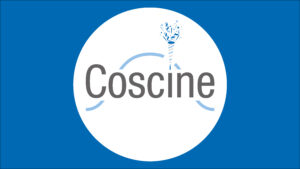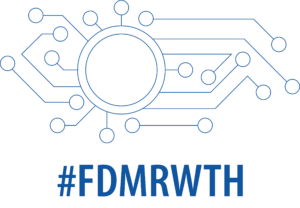A reason to celebrate! After an extensive pilot phase, we can deliver the happy news that Coscine is moving from now on into regular operation. Find out what’s behind Coscine and why this service is the best way to support you in your research data management in this blog post.
Background & Goals
In 2019, the development of Coscine (Collaborative Scientific Integration Environment) started at the IT Center of the RWTH Aachen University. The platform for research data management (RDM) was specifically designed for use in research and has now started regular operation after a successful pilot phase in March 2020.
Coscine aims to provide an integrative solution for RDM that supports various needs and methods. Among other things, it facilitates metadata management during the research process.
Why you should use Coscine?
In the field of research, the appropriate handling of research data in line with the FAIR principles is often neglected. Most of the time, only a few of the project data are handled according to these principles, resulting in valuable information including metadata being lost. Coscine offers a solution to this: a data storage environment that implicitly integrates the FAIR principles.
FAIRly improve your research data!
Login via Single Sign-On, SSO for short, and ORCID dissolves institutional boundaries when accessing a project. This way you can easily access and reuse your research data.
The metadata is automatically linked at the project, resource, and file levels to the research data you provide. Optionally, you can make the metadata publicly available and search it using a search function. We use W3C standards RDF and SHACL to ensure that technical mapping and validation are correct. The AIMS project’s application profile generator allows you to create individual and discipline-specific metadata profiles even without technical RDF or SHACL knowledge.
Various resource types are available to you for storing research data, e.g. the Research Data Storage (RDS), which can be accessed via a web browser or an S3 client. Data is retained and archived for ten years from the end of the project. Externally stored research data can be linked to the project via Linked Data resources or GitLab resources and tagged with metadata.
The project and research data storage locations become unique and permanently identifiable using handle-based ePIC Persistent Identifiers (PIDs), and referenceable at a global level. Extended handle URLs grant you the ability to reference individual files using fragment identifiers.
The Coscine API allows you to interact with the data and metadata in a browser-independent manner. This simplifies subsequent use of the research data and enables workflow automation.
Which changes will take place with regular operation?
The regular operation is accompanied by the continuation of the service. This means that Coscine will continue to be available to you in the future. However, Coscine will continue to be developed and enhanced with new functions and features to ensure the management of your research data according to good scientific practice. Subscribe to our mailing list to never miss any news!
Learn more
You would like to know more about Coscine and managing research data? Then visit us on the Coscine website and read the related documentation.
Do you have questions or feedback? Just send a message to the IT-ServiceDesk. We are looking forward to your inquiry!
______
Responsible for the content of this article is Arlinda Ujkani.






Leave a Reply
You must be logged in to post a comment.